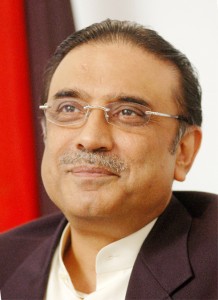ISLAMABAD, (Reuters) – The attack on the Sri Lankan cricket team in Lahore deepened a sense of crisis surrounding Pakistan’s civilian government as it confronts political turmoil less than a year after it took office, analysts said.

“They (militants) are trying to create a vacuum of power in which eventually they can take over,” said Ahmed Rashid, a respected analyst and author of “Descent into Chaos, chronicling the nuclear-armed Pakistan’s mounting insecurity.
Around a dozen assailants attacked the Sri Lankan players bus and a police escort with AK-47 assault rifles, rockets and hand grenades as they were driving to a stadium in the eastern city of Lahore for the third day of a match.
Six Sri Lankan players and two officials were wounded while eight Pakistanis, including six policemen, were killed. Officials said the attack bore similarities to the assault by Pakistani-based Islamist militants on the Indian city of Mumbai that killed at least 170 people in November.
Pakistan has detained some members of the Lashkar-e-Taiba, a militant group that has had friendly ties with Pakistani security agencies in the past, over the Mumbai attack. India and the United States have been watching to see how strongly the government acts against the jihadis and attack in Lahore could reinforce those compulsions.
“This embarrasses the Pakistani government enormously,” said M.J. Gohel, executive director, of the U.K.-based Asia-Pacific Foundation think-tank.
It also further chills Pakistan’s investment risk outlook at a time when the government is trying to raise more money abroad, having staved off virtual bankruptcy with an emergency loan from the International Monetary Fund last November.
The stock market slumped due to a political crisis that blew up last week, because of President Asif Ali Zardari’s decision to dismiss the Punjab provincial government led by the party of his main rival, former prime minister Nawaz Sharif. Sharif has urged street agitation against the government after the Supreme Court last week barred him and his brother for standing for elected office.
“Obviously the country is in a very, very serious danger and instead of concentrating on the war against the extremists, the government is fighting other political parties…This is a time they should reconcile with Nawaz Sharif,” Rashid said.
“NO ONE SAFE”
While Westerners have long feared becoming targets, analysts could divine no other reason for the attack on the Sri Lankans other than to give a message that nobody was safe.
“Obviously the idea was that the message be sent to the rest of the world that Pakistan is not a safe place to go to. I think that way they have succeeded,” security analyst Ikram Sehgal said.
Some Pakistanis are getting that message as well. “I never wanted to leave my country, but these attacks have proved no one is safe. If I had the option, I would leave,” said Amina Ansari, a 26-year-old working in a multinational bank in the southern city of Karachi.
Most analysts won’t look far beyond Pakistan’s militant Islamist groups for likely suspects, though Pakistani hawks and nationalists are predisposed to blame India.
During the past two years, Islamist militants, angered by their government’s alliance with the United States, have launched a wave of suicide attacks and bomb blasts.
The brazenness of the attack in Lahore, Pakistan’s cultural capital and political nerve centre, was similar to the Mumbai attacks, though the gunbattle lasted only 30 minutes instead of three days and unlike Mumbai the attackers all got away.
“Any terrorist in his right mind would have looked at the Mumbai attack and noted the massive coverage it had and decided that this is the model to follow in future,” said Robert Ayers, security analyst at Britain’s Royal Institute of International Affairs. As was the case in the aftermath of the attacks on Mumbai, eyes will be on Pakistan to see if Islamabad mounts a serious crackdown on militant groups or whether relations with India will be further destabilised.
Zardari’s dovishness towards India has angered nationalists and militant groups alike. His government is also under pressure from the United States to take concrete measures to fight the Taliban and al Qaeda, again to the chagrin of the religious nationalist constituency. Information Minister Sherry Rehman denied the government had any information of any Indian involvement, contradicting comments by a junior cabinet minister who said the government had evidence the militants came from Pakistan’s old foe across the border.
Suspicion of India finds a ready audience in the Muslim nation created out of the partition of the Indian Subcontinent in 1947. The countries have fought three wars since then, and India put a peace process on ice after the attacks on Mumbai.
“It’s all too obvious that it (the attacks in Lahore) is the handiwork of the Indian intelligence,” said Hamid Gul, a retired former head of the military’s Inter Services Intelligence (ISI) agency.
“We have to now walk out of our participation in war against terrorism. We will fight terrorism in our own way,” said Gul, an avowed sympathiser for Islamist causes.





